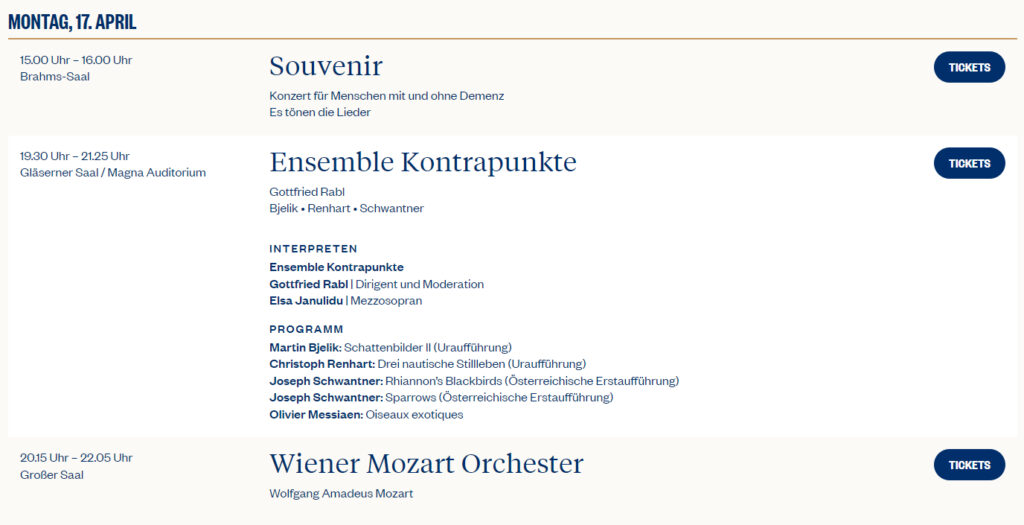
Ensemble Kontrapunkte plays «Drei nautische Stillleben» in April with soloist Elsa Janulidu
On April 17 the Viennese Ensemble Kontrapunkte will stage my new work «Drei nautische Stillleben» for mezzo soprano and ensemble under the baton of Gottfried Rabl. The soloist part will be sung by the Greek mezzo soprano Elsa Janulidu. The event will take place at the Musikverein’s Gläserner Saal.
Being my third collaboration with the Ensemble Kontrapunkte, I’m particularly looking forward to rehearsing the piece with an ensemble that I consider ideal for the aesthetics I seek in music. I have chosen a wide range of instruments for the orchestral version of this song cycle that is based on my own texts: Five woodwind instruments (including two clarinets), three brass instruments that play with different mutes for long periods, a large percussion part for three percussionists (which also features three percussion frogs that do sound like real rogs), a piano part that also features a virtuous celesta passage and string quintet section. The entire piece is estimated to last approximately 20 minutes.
About the work
«Three Nautical Still Lifes» for mezzo soprano and ensemble is based upon four poems, that I wrote as a starting point for a new song cycle for mezzo soprano and piano. The chamber music version was composed in 2021 — it is the basis of the present version for mezzo soprano and ensemble.
The surreal texts are framed by instrumental sections. An instrumental prologue is put in front of the first poem, which anticipates the wet atmosphere of the texts. A monologue recited by the ensemble forms the middle movement. At the climax of the cyclic work, the cachalot stands as a metaphor for an erupting volcano, which collapses spectacularly. In the epilogue, the voice and the ensemble find together finally in a rather melancholic certitude: «Auspicious in the asters’ morass, the loam quenchs the sore furrows».